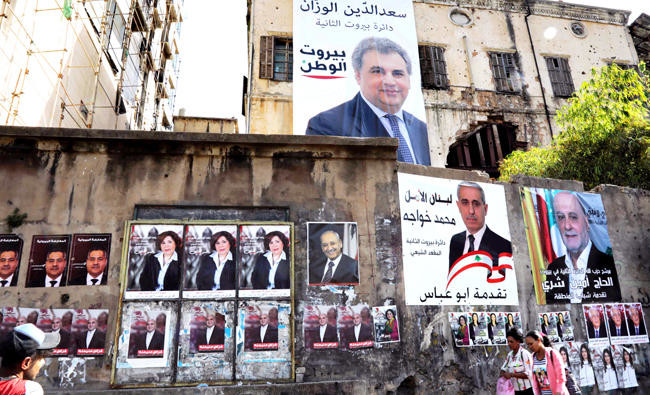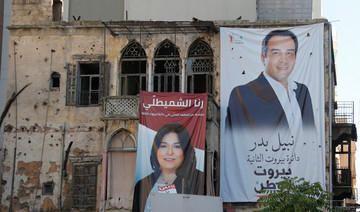BEIRUT: Sectarian and partisan polarization resulting from fierce competition for parliamentary seats in Lebanon has led to the first armed clash between two rival Druze parties.
Machine guns were used in the clash between the Progressive Socialist Party, led by MP Walid Jumblatt, and the Lebanese Democratic Party, led by Talal Arslan, which took place on Sunday evening in the city of Choueifat, about 5 km south of Beirut.
The two parties’ leaders acted quickly to calm their supporters.
“When politicians plant seeds of hatred and grudges among people, they commit a crime against citizens who have been breaking bread together for centuries,” Jumblatt said in a tweet.
In a joint statement, the two parties stressed “the need to avoid any steps that could provoke anger among supporters or disturb citizens who look forward to freely exercising their right to vote in an atmosphere of democratic competition.”
The two parties, alongside other parties with supporters in Choueifat, such as Hezbollah, the Lebanese Forces, the Syrian Social Nationalist Party and the Amal Movement, have agreed on “disowning anyone who breaches security, requesting that the security forces intensify their presence in Choueifat, identifying fixed locations until the elections are over, and restraining from carrying out provocative processions.”
Campaigning lasts 24 hours before polling and has seen various kinds of violations of the electoral law.
Several young men from the Sabaa party — a group of independent activists — demonstrated on Tuesday outside the Ministry of Interior, carrying banners questioning the ministry’s role in election-related issues.
“Serious violations are taking place because the country is out of control; many are exploiting their positions and pouring (in) their money, and conflicts are happening at grassroots level — people are tearing down photos of candidates and individuals are fighting with one another,” said Gilbert Hobeish on behalf of the demonstrators.
He added: “This is unacceptable, and the minister of interior must take responsibility.”
Hobeish criticized the Electoral Supervisory Commission, saying “it only oversees the civil society or change candidates.”
“We reject this in toto,” he said.
Ali Al-Amin, a candidate on the Shbaana Haki electoral list (who was assaulted last Sunday by Hezbollah supporters in the town of Shaqra because he hung his photo outside his house), held a press conference in the town of Nabatiyah Al-Fawqa and renewed his protest against “the tyranny that silences voices, oppresses liberties and acts on its own will and temperaments, making us feel as if we were in the law of the jungle era.”
He said that “resistance isn’t anyone’s property nor is it one party’s ownership.”
He also called on “the free people of the south to decide which life they wanted and to which homeland and identity they belonged.”
Campaign fever is rising in Lebanon 48 hours before the elections are held for the first time for Lebanese communities in several Arab countries. These elections are to be held 11 days before parliamentary elections take place inside Lebanon.
Lebanese election campaign fever turns into clash between Druze parties
Lebanese election campaign fever turns into clash between Druze parties

- Lebanon's independent Sabaa party talks about exploitation of positions and money.
- Several young men from the Sabaa party demonstrated on Tuesday outside the Ministry of Interior.











